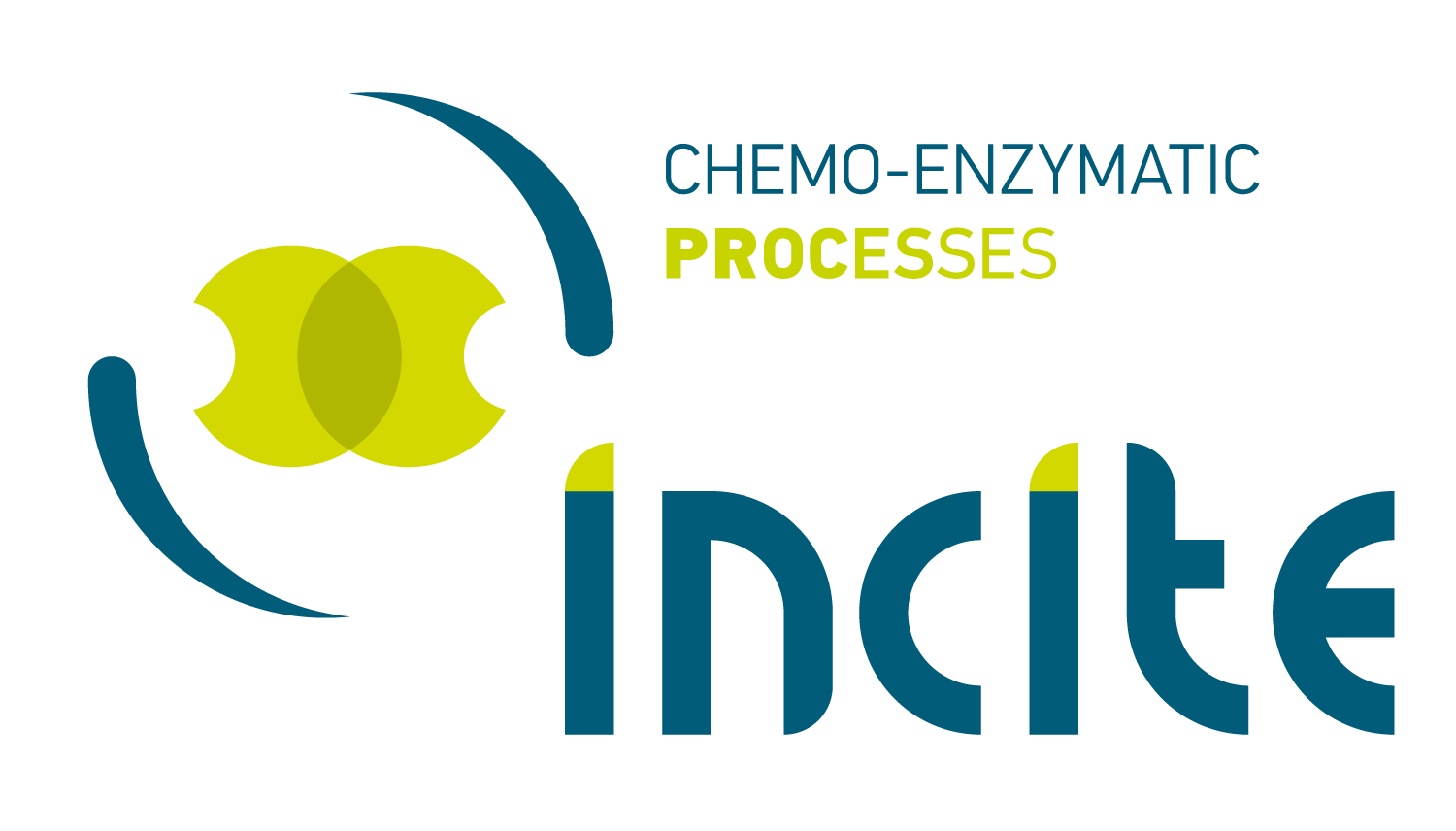Some of our running projects are listed here
Do you need training support for your project, or is your project missing on this page? Contact us!
Some of our running projects are listed here
Do you need training support for your project, or is your project missing on this page? Contact us!

INCITE aims to accelerate a transition to a more flexible and sustainable chemistry by taking novel integrated upstream and downstream processing. The project involves flow chemistry and membrane technology in two chemo-enzymatic demonstration cases at an industrial level.
The CAPTURE Academy is involved in developing content for the training and dissemination component of the INCITE project. The training is offered via 3 types of activities:
1) Development of Online learning modules: The main instrument for knowledge disclosure is the series of 10 online learning modules. The totality of the learning modules forms a coherent set starting with the considerations, advantages and disadvantages of the more general underlying technologies and green chemistry principles used in INCITE, to the more advanced and applied integrated demonstration cases developed in INCITE. Examples are principles of enzymatic production, membrane separation, LCA assessments in the chemical industry, oleo chemical plant operations etc. The modules are accessible on an open platform and available for free. Anyone with a background in basic chemistry and physics is welcomed to follow the learning modules, of about 4 study hours per module. Available on the CAPTURE Academy.
2) A series of 10 webinars is offered for the green chemistry community. Each of the 10 webinars dives into the contents of a specific learning module and foresees a Q&A session with the audience. The webinars are recorded and made available on the INCITE Youtube channel for replay.
3) Two physical training workshops are organized during the yearly RRB conference on renewable resources and biorefineries, targeting professionals and academics. This allows networking and further knowledge interchange between the relevant actors in the field.
The focus of the Industrial Symbiosis Hub is to gather industry, universities, and students to work on challenges in industrial symbiosis. Real-life challenges from the industry are presented to students in the shape of assignments and graduation projects. In return, companies get answers to their challenges based on the most recent academic insights.
Examples of sectors where industrial symbiosis can be applied are chemistry (e.g. exchanging materials), production engineering (e.g. recycling, remanufacturing), business (e.g. new business models) and law (e.g. liability issues between exchanging industrial partners).
The institutes involved are:
The project’s industrial partners are CoolRec (Belgium), Circularise (Netherlands), and Resourceful BVBA (Belgium), which will give the project its valuable input from practice.
Within this project, CAPTURE will organise the Industrial Symbiosis Hub in Flanders. Feel free to contact us with ideas on student assignments within this project.
EIT RawMaterials, initiated and funded by the EIT, a body of the European Union, is the largest consortium in the raw materials sector worldwide. Its vision is to develop raw materials into a major strength for Europe. Its mission is to enable sustainable competitiveness of the European minerals, metals, and materials sector along the value chain by driving innovation, education, and entrepreneurship.
Modular toolbox for professional education
There is an urgent need in industry to match the training of professionals with today’s industry needs of increasing process flexibility, meeting customer and societal needs, delivering high environmental, social and ethical performance, and rapidly changing career paths of the workforce. This training should be pace-based, attractive, of high-quality, tailored to the audience and modular so learners can learn anything, anytime, anywhere. The MOTOPED project provides an approach for high quality training on demand using a blended learning approach for fast, efficient, effective and focused training of new and existing workforce, especially to increase innovation. Therefore a generic web-based training based on a toolbox approach and consisting of different teaching methodologies (videos, presentations, reading material, knowledge clips, quizzes …), the MOTOPED concept, was developed and piloted with learners from the industrial partner Umicore. The MOTOPED concept provides the possibility to complement the generic toolbox with add-on modules, tailored to the audience.
This allows potential further commercialization of the platform, since it can be easily tailored to other companies or to other sectors. Also MSc and PhD education profits from the outcomes of this project. The concept and content developed in the project will be readily usable for the project partners. Communication and dissemination
The MOTOPED project was financed by EIT Raw Materials and coordinated by Ghent University as key academic partner for developing the teaching modules and courses.